My Taste in Music is Way Better Than Your Taste in Music
________
[Main]
[Reviews]
[Features]
[Albums]
[Wanted]
[Top 50]
[Guestbook]
________
tommoat
uccdot
asndot
au
________
|
 |
#40 Liars - They Threw Us All In a Trench and Built a Monument On Top (2002)
The absolute pinnacle of that strange genre known as "dancepunk." Liars' debut was so simple in concept - the jagged-edged guitars and tone deaf vocals of punk combined with the fat basslines and thumpy percussion of club music - that it had to work on some level. The reason it works so well is that the balance between these two elements is perfect. The dancy bass and percussion sit so subtly underneath the more chaotic elements that it's barely noticable yet utterly effective. If you write it all off as "unlistenable" only to suddenly notice that you've been dancing to the first three or four tracks, then you'll know exactly what I mean.
|
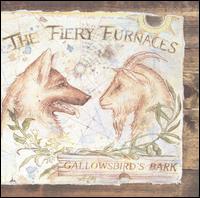 |
#39 The Fiery Furnaces - Gallowsbird's Bark (2003)
Despite the White Stripes comparisons and rusty, underproduced charm, on their first release the Fiery Furnaces were not really a garage-revival band, regardless of what the music press decided. "Southern barndance-revival" perhaps? The Fierys' stomp and crash aesthetic made Gallowsbird's Bark a whole lot of goofy fun, while the lack of Blueberry Boat's crazed experimentation made it something anybody could enjoy. There's still some fantastic fine-touches though - it's only after listening to "Asthma Attack" five times in a row that you realise the beat you're getting down to is someone clunking all the lower keys on a piano simultaneously, over and over again. |
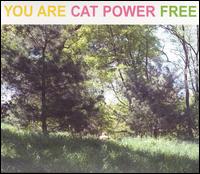 |
#38 Cat Power - You Are Free (2002)
Cat Power reached a true highpoint with the release of 2002's brilliant You Are Free. Throughout the album, beautiful melodies are accompanied by Chan Marshall's absolutely gorgeous vocals, with musical styles ranging from sparse, piano-driven ballads to edgy and upbeat folk-rock, with several tracks falling somewhere in between. Marhsall's vocals are always soft yet resolute, giving her a wonderfully vulnerable sound, yet always with an incredible underlying strength. This all makes her the kind of singer able to give a harrowing recollection of childhood abuse ("Names"), with a level of resignation far more affecting than any grab at pity could ever be. The album certainly isn't uniformly depressing though, and highlight tracks such as "Lost" and "He War" posess a certain level of driving focus which makes them feel positive, even if their lyrics don't always reflect it. It may take a few listens for You Are Free to properly sink in, but once it does, the results are well worth the effort.
|
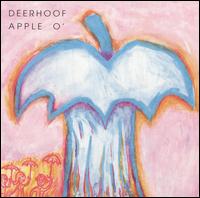 |
#37 Deerhoof - Apple O' (2002)
An utterly absurd band, Deerhoof have found their niche through bypassing the whole idea of complementing their songs with a touch of eccentricity, and have settled on just letting the eccentricities completely dictate their style. Hardly anyone could be taken seriously with songs like the jerky anime-funk breakdown "Panda Panda Panda", but Deerhoof do it so much better than anyone else could hope to. The music is cheerfully quirky, loaded with childish melodies and Satomi Matsuzaki's dewey, irresistable vocals. Apple O' sees Deerhoof work their vivid aesthetic through an entire album, all poppy sunshine and loopy smiles, with a level of quality and consistency not seen in this sort of music since Cornelius made Fantasma in 1997. |
 |
#36 The Unicorns - Who Will Cut Our Hair When We're Gone? (2003)
Canadian group The Unicorns are very appropriately named - their music is a sort of whimsical, fantasy lo-fi, and their debut album Who Will Cut Our Hair When We're Gone? has its foundation in nursery rhymes and storybook antics. Their music is bubbly and fun, laden with fuzzy guitars, el-cheapo Casio sound effects and wildly imaginative lyrics, while being full of the clever production touches the lo-fi genre is reknowned for. As such, The Unicorns hold equal appeal to fans of sparkling indie-pop groups like The Shins, lo-fi folk-rock acts like The Mountain Goats, or kindred spirits The Fiery Furnaces. Being mentioned alongside such bands is not only an honour, but also an indication of just how good The Unicorns are.
|
 |
#35 The Books - Thought For Food (2002)
The first two Books albums share so many characteristics that any track on Thought For Food would fit in pretty seamlessly within The Lemon of Pink, and vice-versa. That's a pretty big call, as you can be sure you'll see that other Books album further along in the list. If there's any notable difference, it's that Thought For Food is a little more rough-edged, with its sampling of found sounds and musical-collage effect being a little more choppy. The Books have a trick up their sleeve that few other artists can boast - their songs are highly complex, yet completely accessable and unthreatening. Most important of all is the joyous, celebratory tone that makes The Books so addictive, and Thought For Food has it in abundance. |
 |
#34 Explosions in the Sky - Those Who Tell the Truth Shall Die, Those Who Tell the Truth Shall Live Forever (2001)
"Intelligent" metal has generally been the domain of bands like Opeth, combining the usual components the genre suggests with extra touches such as strings and acoustic sections. This is all very well, but the obligatory feeling of gloomy dirge never really makes it accessable to anyone who doesn't like metal in the first place. This is what makes Explosions in the Sky such an important band - their mixture of space-rock and metal makes them equally appealing to metal fans as it does to fans of experimental or post-rock. Their second album (the first is very hard to find) boasts some beautiful soundscapes, complemented by bursts of unexpected (and very loud) guitar noise. The tracks are almost completely devoid of vocals, so thankfully things don't get as angsty as the album's title would suggest. Interestingly enough, it also contains some of the best drumming you'll hear on any album, of any genre. |
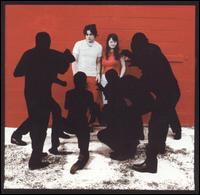 |
#33 The White Stripes - White Blood Cells (2001)
Everyone loved "Fell in Love With a Girl" and "Hotel Yorba," but White Blood Cells was such a brilliant album that it probably could've spawned another half dozen hit singles. Jack White's guitar often reaches arena-rock levels of power, and tracks like "Dead Leaves on the Dirty Ground," "Expecting" and the instrumental, testosterone-rock beheamoth "Aluminium" all reach Earth-shattering proportions. They do equally well showing off their sensitive side, with the sugary pop tracks "Same Boy You've Always Known" and "We Are Gonna Be Friends" being two of the album's best highlights. From the opening distortion wail you knew you were in for something good, and by the album's conclusion it was beyond doubt that the Stripes were going to be huge. |
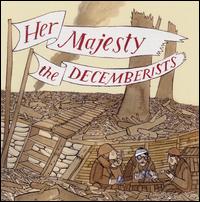 |
#32 The Decemberists - Her Majesty, The Decemberists (2003)
With Colin Meloy's nasal delivery and the group's somewhat folky sound, comparisons of The Decemberists to Neutral Milk Hotel have been numerous. What sets the Decemberists apart, not just from The Elephant 6 collective but from the rest of the new-folk scene in general, is their love of the theatrical. From the scream and piano crash at the opening of "Shanty For the Arethusa," it's clear that The Decemberists get a real kick out of being dramatic, and at times, Her Majesty, The Decemberists has all the charm of a vagabond theatre company. Every track on the album has such dense production to promote this effect, that the results can be incredibly immersive. From the modern cynicism over 60s soundtrack of "Los Angeles, I'm Yours" to the curtain-drop sneer of "I Was Meant For the Stage," every track sounds as though it were recorded with an audience, not just a listener, in mind.
|
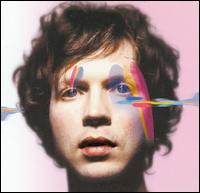 |
#31 Beck - Sea Change (2002)
"Sensitive new age Beck" was something a lot of people found a little hard to take, and Sea Change's mature tone saw some listeners accusing Beck of divaesque posing. The lack of hipster pranking typical of his earlier albums gave Beck an important level of focus, though, and it was great to hear him trying something new. The lush string arrangements, gentle acoustics and crooner-style lyrics were beautiful in their simplicity, while complex touches like the dense, dreamy backing on "Round the Bend" and see-sawing violins of "Paper Tiger" meant that it never got close to boring. |
Next Page
50-41 40-31 30-21 20-11 10-1
|